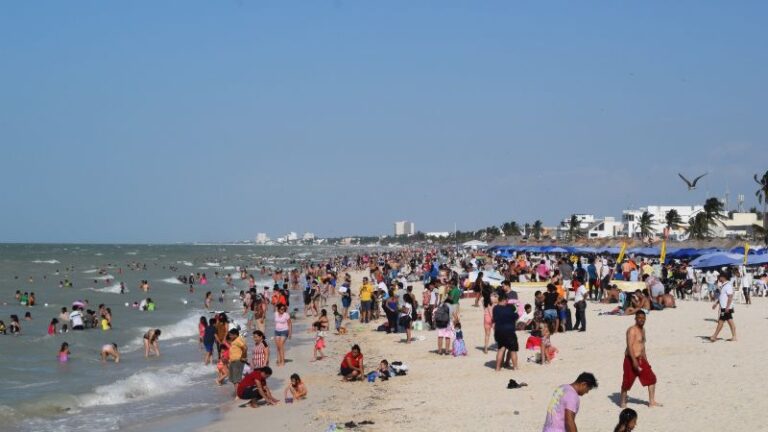Currently, nine airlines and 19 routes operate at Merida International Airport, with 204 domestic flights and 33 international flights per week, offering 41,092 seats for weekly arrivals.
The state government, through the Tourism Promotion Secretariat (Sefotur) headed by Michel Fridmann Hirsch, has made a tourism decentralization plan a priority, which assumed great importance during his nearly six years in power, successfully bringing the benefits of tourism to the various regions of the state, stimulating the social and economic development of the state’s population and positioning the state as a tourism hub in southeastern Mexico.
The owners of Sefotul highlight the fact that today the Yucatan Peninsula can be said to be a destination for everyone, with an endless tourist attraction strengthened by its identity, traditions, customs, history, gastronomy and cultural excellence, characteristics that have allowed it to be harnessed to promote decentralized, sustainable and inclusive tourism, while at the same time protecting the environment.
Mérida, Yucatan – Photo: TurismoMID – Facebook
It is noteworthy that during the management of Fridmann Hirsch, the tourist destination distinguished itself by its initiatives and the development of successful promotional campaigns at national and international level, which resulted in a historic increase in industry figures, including the number of visitors to the state.
It is important to highlight that this Administration faced great challenges, unprecedented in its history, such as the unforeseen circumstances of COVID-19, but it managed to confront the situation through the measures taken at the time, such as the creation of the 365 Days in Yucatán campaign, which promoted domestic tourism among the population “without leaving home” and achieved a recovery to pre-pandemic indicators.
Likewise, these types of activities, implemented with the support of the private sector, have led to higher-than-expected increases in industry indicators year after year, resulting in a historic rise in all tourism indicators, including the increase in the supply of tourism products, with the number of newly registered tourism products increasing from 60 in 2018 to 216 in 2024, representing a 260 percent increase in new products.
It must be mentioned that as an outcome of the public-private partnership of this administration, the supply of tourism products and services in the state has increased, up by about eight percentage points from 44.6% in 2018 when the current administration took office, to reach 53.3% by April 2024.
It is worth remembering that in 2018, before this administration took office, Mérida was home to 56% of the supply of tourism products and services, whereas today (2024) it is only concentrated at 46.4%, which indicates a concentration of tourism away from the capital of Yucatán and towards other places.
TYT Newsroom

